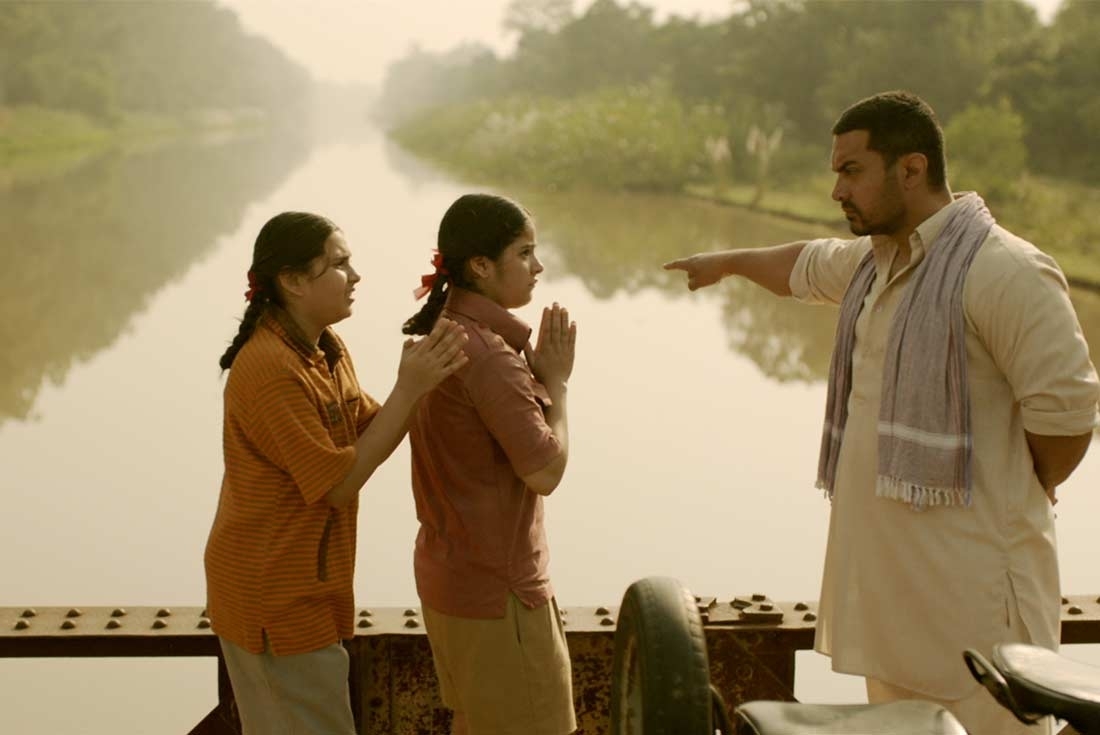

As we witness India’s golden age of sports, a filmmaker is making the celebration bigger this week. But not in a biopic of the clichéd, glorified, jingoistic kind. For Nitesh Tiwari, humour has always been a very important part of life and hence, no struggle must come unspiced with it. The director says that, perhaps, is what distinguishes Dangal from its sermonic forerunners as he takes us behind all the groundwork that went into it and making the leap from his maiden Chillar Party to the million-dollar playfield.
Take me through your journey in filmmaking.
For me, the journey has just begun. I never consciously walked into becoming a filmmaker. It started as an experiment between me and Vikas [Bahl], the co-director of Chillar Party. We just stumbled upon a good story and wrote it together, we never really wanted to direct it. We were looking for directors but nobody was willing to do the film because it had 10 kids and one dog and no stars. So we were left with no choice. I had to convince myself to leave my advertising job for 5-6 months to direct a feature film without having any real experience. But I realised there was nothing to lose. Now, I’m glad that I took that plunge. Chillar Party taught me a lot, especially the technical stuff, and about directing kids. Going forward, Bhoothnath taught me a lot about special effects…I’d always do my homework and come to set so that I wouldn’t appear ignorant. It helped improve my skills in a different direction and that also came in very handy in Dangal, because Dangal takes vfx to another level.
What inspired you to direct Dangal?
It was brought to me by my friends at Disney, Manish and Divya, and they narrated the story brief in about four lines. When I heard the basic premise of the plot, it kind of intrigued me but I was not very sure. I told them I am interested, let’s at least go and meet the people concerned, and let us write the story and then see how it goes. That is when we went to Patiala, Bhiwani and Bhowali for the initial 10-day research and interviewed everyone—the Phogat sisters Geeta and Babita, Mahavir Singh-ji, his wife, his cousins…for the first time I saw the wrestlers in sand and it was awe-inspiring; nothing like what you've seen before. You have a different image in mind, but it’s an eye-opener when you really see it happening. I saw how the girls trained at the National Sports Institute, I spoke to coaches…and when we finally managed to collect the ingredients, we thought we were setting out on something very rich. After the initial research trip, we thought we had enough to come back and start the script. Then we kept going back and forth as we developed the story...we made calls, went again, interviewed more people, cross-checked the facts. It's only when you're really writing that you need to know the next event in complete detail, so we kept reworking that till we thought we had everything right. The family has been very helpful, and each event that unfolded in the process of recreating the story was inspiring for us.
How did Aamir come into the picture?
It was Aamir who picked Dangal rather than the other way. The screenplay was ready in about a year after going to and fro with specific facts needed to build the story, and it was like a very serious subject so we very consciously wrote it to sound light-hearted. I think when we went and met Aamir sir, he was already aware of the story of Geeta and Babita Phogat and was pretty impressed with the way we had treated the story as writers. He said, ‘Oh it’s motivating and inspiring but not so serious. It’s got everything but most importantly it’s not a heavy film,’ and I think that’s what made him say yes to it. I do believe that's true, the humour is very important both in life and film. Every struggle offers its share of things to laugh at.
Can you share a little about your creative process?
I always write with my team. I don’t think I’ve written any screenplay on my own. I’m a firm-believer in teamwork—if we have more minds working on something, we have more options to choose from. Thankfully I had the luxury of picking my co-writers Nikhil [Mehrotra], Piyush [Gupta] and Shreyas [Jain], who’ve been on my team since Leo Burnett. There’s a great comfort level and we know how to work together.
What is next?
I have a few subjects that I am toying with, but it’s too early to talk. Honestly, I don’t really make a conscious call…it’s the subject that chooses me.